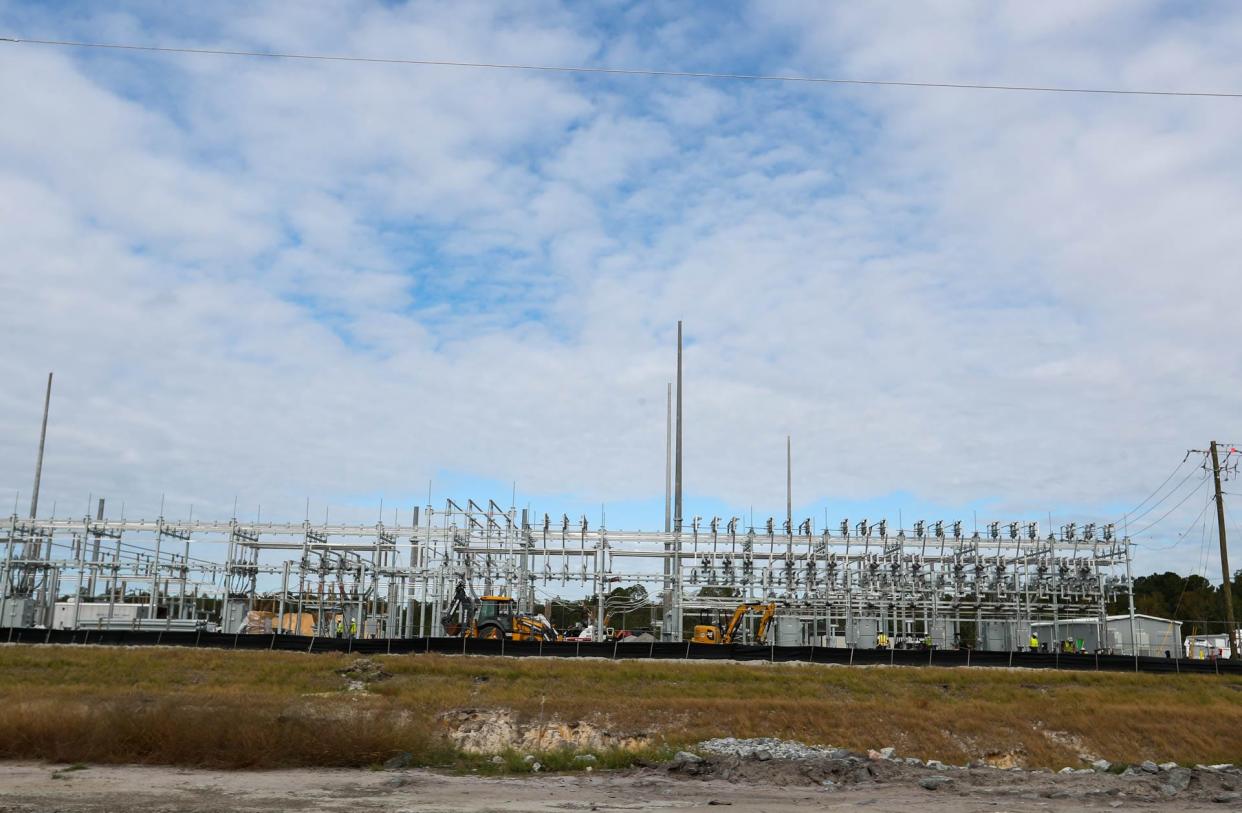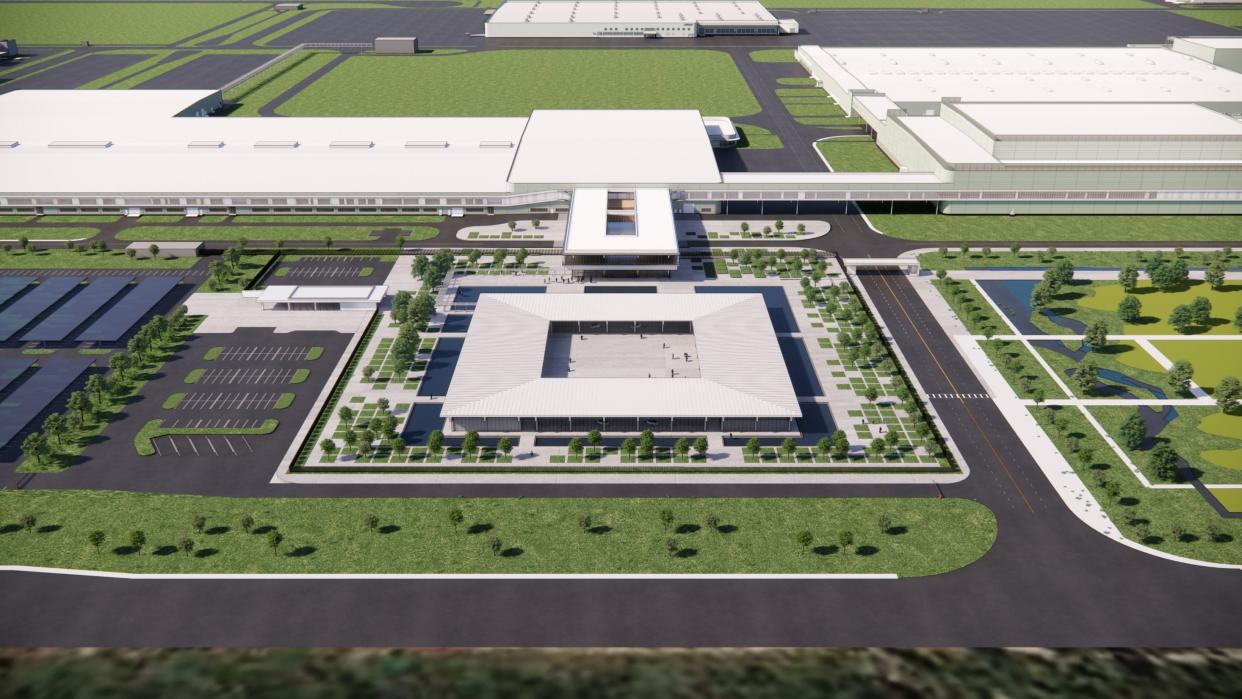Georgia Power no longer plans to acquire energy-generating 'asset'

Just days after formal opposition from environmental groups, Georgia Power has dropped its pursuit of an energy-generating “asset” to help make up for what the state’s largest utility calls an unexpected spike in demand.
On Friday, Georgia Interfaith Power & Light, an environmental justice advocacy organization, filed a motion with the Georgia Public Service Commission challenging Georgia Power’s secrecy over the possible purchase.
A vague reference to the prospective deal was included in the company’s updated Integrated Resource Plan, or IRP, filed with the Georgia Public Service Commission on Oct. 27.
As part of the revised IRP, Georgia Power said it would “pursue (the) potential acquisition of an additional ownership interest in an existing generating asset within the Southern Company footprint.”
Georgia Power is the largest subsidiary of the Atlanta-based Southern Company.
The acquisition was one of several strategies proposed by Georgia Power to meet what it says is a surprise surge in demand fueled by the state’s manufacturing boom. But the company declined to disclose the “asset” or how electricity would be generated there.
With Georgia Power already facing scrutiny for its plan to add natural gas capacity to its portfolio, including from outside the state, GIPL argued that commissioners should know more about the potential purchase.
While about 50% cleaner than coal, burning natural gas still produces heat-trapping carbon dioxide pollution, the leading human-caused contributor to climate change.
In its own filing Monday afternoon, Georgia Power told the commission it was no longer pursuing the acquisition.
“(T)he Parties were unable to reach an agreement at this time,” Georgia Power said. “The Company will continue to explore other potential resource solutions and opportunities to meet its projected capacity needs and will return to the Commission if additional resource options become viable.”
That’s after Georgia Power stated in the revised IRP that a purchase agreement “can be reached” while the commission considered the revisions and that a supplemental filing would be submitted if that happened.
That wasn’t enough to justify the company’s secrecy, GIPL countered.
“Georgia Power reveals nothing to the public about what this potential acquisition entails, other than it promises to ‘supplement’ its filing after it reaches an agreement to purchase this mystery asset on behalf of its customers,” the Friday filing asserted. “This black-box procurement flips the design of the public IRP process on its head, allowing Georgia Power to buy assets first, and ask for permission later.”

IRP revision is two years early
Georgia Power already faced criticism for filing a revised plan a little more than a year after the Public Service Commission approved the company’s current IRP, which lays out a 20-year operational framework.
The regular schedule calls for updates every three years.
The latest revision estimates an increased 6,600 megawatts of energy demand by 2023 – nearly 17 times what the company said it would need in the IRP approved in July 2022.
“Conditions have changed,” Aaron Mitchell, vice president of Pricing and Planning at Georgia Power, told the Augusta Chronicle last month. “We have new customers and continued economic development in the state."
But critics counter that much of that coming economic development – including Hyundai Motor Group’s electric-battery manufacturing facility in Bryan County and Rivian’s electric truck plant near Atlanta – was announced in time to be considered in Georgia Power’s 2022 IRP, which called for an increase of just 400 megawatts by the end of the decade.
Georgia already leads the Southeast in electric-vehicle related employment (about 28,000 jobs) and investment ($20.4 billion), according to Southern Alliance for Clean Energy.
The revision also calls for a 30% increase in fossil-fuel use, including building oil and gas turbine combustion generators at Plant Yates, southwest of Atlanta, with a 40-year life expectancy.
Georgia Power also requests purchase agreements for a natural gas-fired generator in Pace, Florida, and to continue buying 750 megawatts of electricity from Mississippi Power, another Southern Company subsidiary.
The revision does call for 200 additional megawatts of solar generation for a battery storage facility, but the company should transition to renewable energy more aggressively, critics argue.
“It’s shocking that Georgia Power would ask to invest so heavily in methane gas just months after volatile fossil fuel prices caused a nearly $16 a month hike in customer bills,” said Jennifer Whitfield, senior attorney with the Southern Environmental Law Center. “This is a bait and switch for companies bringing green and renewable manufacturing jobs to our state, and a financial risk to families already saddled with some of the highest power bills in the country.”
Another hike?: Public Service Commission hearings to raise electricity rates begin next week
Dangerous Levels: Georgia has world's largest wood pellet factory, and state says its exceeding pollution limits
Four rate hikes this year?
The Public Utilities Commission approved a 12% increase in rates for Georgia Power customers in May to make up for higher costs in fuel.
The commission is considering a separate rate hike to cover the expense of building new nuclear reactors at Georgia Power’s Plant Vogtle in Waynesboro.
The company, Public Utilities Commission staff and several advocacy groups worked out a deal that would increase customer bills by nearly $9 per month for the average customers. Commissioners will begin hearing testimony on the proposed increase Dec. 19.
If approved, the rate hike would become effective when Plant Vogtle Unit 4 comes online next year. It would be the fifth increase for Georgia Power customers since Jan. 1, 2023.
As for Georgia Power’s latest Integrated Resources Plan, the company says it expects “existing and new customers to recognize substantial economic benefits from this energy usage growth, which helps offset and balance the cost of investments needed to serve Georgia's growing energy needs.”
John Deem covers climate change and the environment in coastal Georgia. He can be reached at jdeem@gannett.com.
This article originally appeared on Savannah Morning News: Georgia Power drops plans to acquire energy 'asset'
